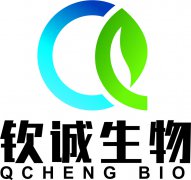细胞因子重组蛋白

Recombinant Human VEGF-B
Recombinant Human VEGF-B
产品详情
VEGF-B, a member of the VEGF family, is a potent growth and angiogenic cytokine. It promotes DNA synthesis in endothelial cells, helps regulate angiogenesis and vascular permeability, and inhibits apoptosis in certain smooth muscle cells and neurons. VEGF-B is expressed in all tissues except the liver. It forms cell surface-associated, disulfide-linked homodimers, and can form heterodimers with VEGF-A. There are two known isoforms, formed by alternative splicing, which have been designated VEGF-B167 and VEGF-B186. Both forms have identical amino-terminal sequences encoding a cysteine knot-like structural motif, but differ in their carboxyl-terminal domains. Both VEGF-B isoforms signal only through the VEGFR1 receptor. Recombinant Human VEGF-B is a 38.0 kDa, disulfide-linked homodimeric protein consisting of two 167 amino acid polypeptide chains.
Source: E.coli
Synonyms: Vascular Endothelial Growth Factor-B, VEGF-related factor, VRF
AA Sequence (monomer): PVSQPDAPGH QRKVVSWIDV YTRATCQPRE VVVPLTVELM GTVAKQLVPS CVTVQRCGGC CPDDGLECVP TGQHQVRMQI LMIRYPSSQL GEMSLEEHSQ CECRPKKKDS AVKPDSPRPL CPRCTQHHQR PDPRTCRCRC RRRSFLRCQG RGLELNPDTC RCRKLRR
Purity: ≥ 98% by SDS-PAGE gel and HPLC analyses.
Biological Activity: Determined by the dose-dependent stimulation of the proliferation of human umbilical vein endothelial cells (HUVEC) in the presence of human VEGF165. The expected ED50 for this effect is 1.0-2.0 μg/ml.

